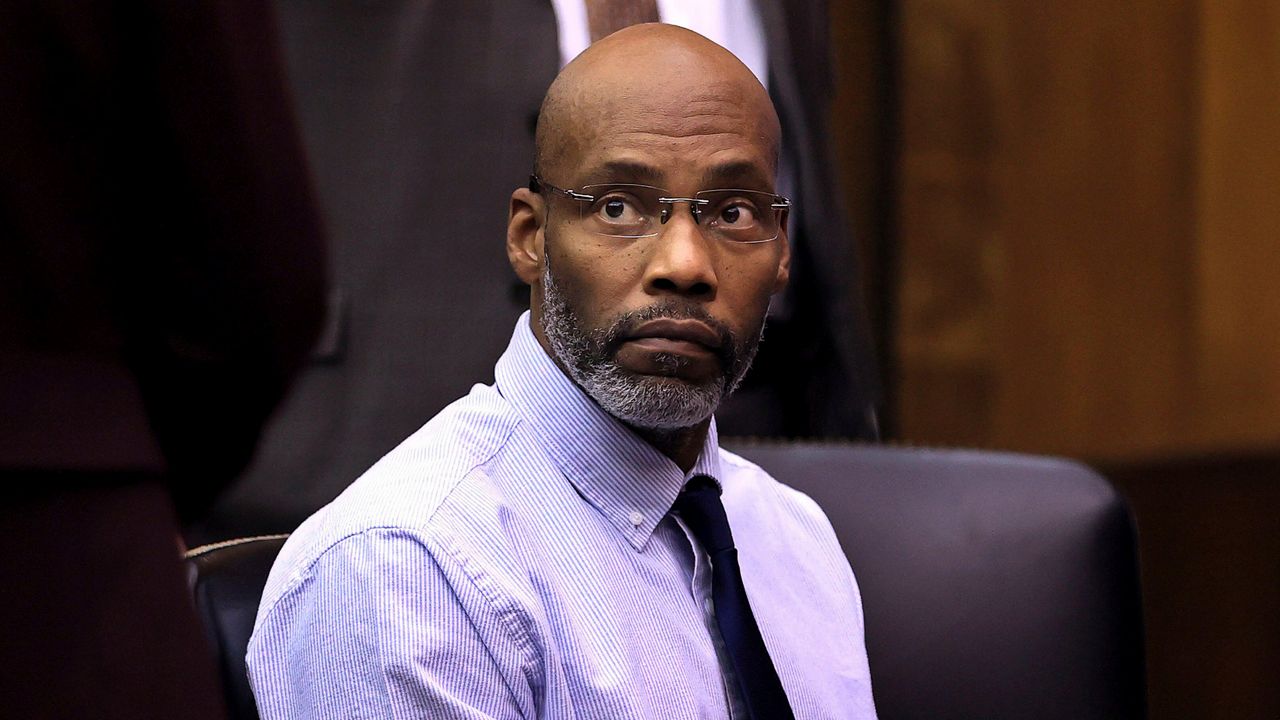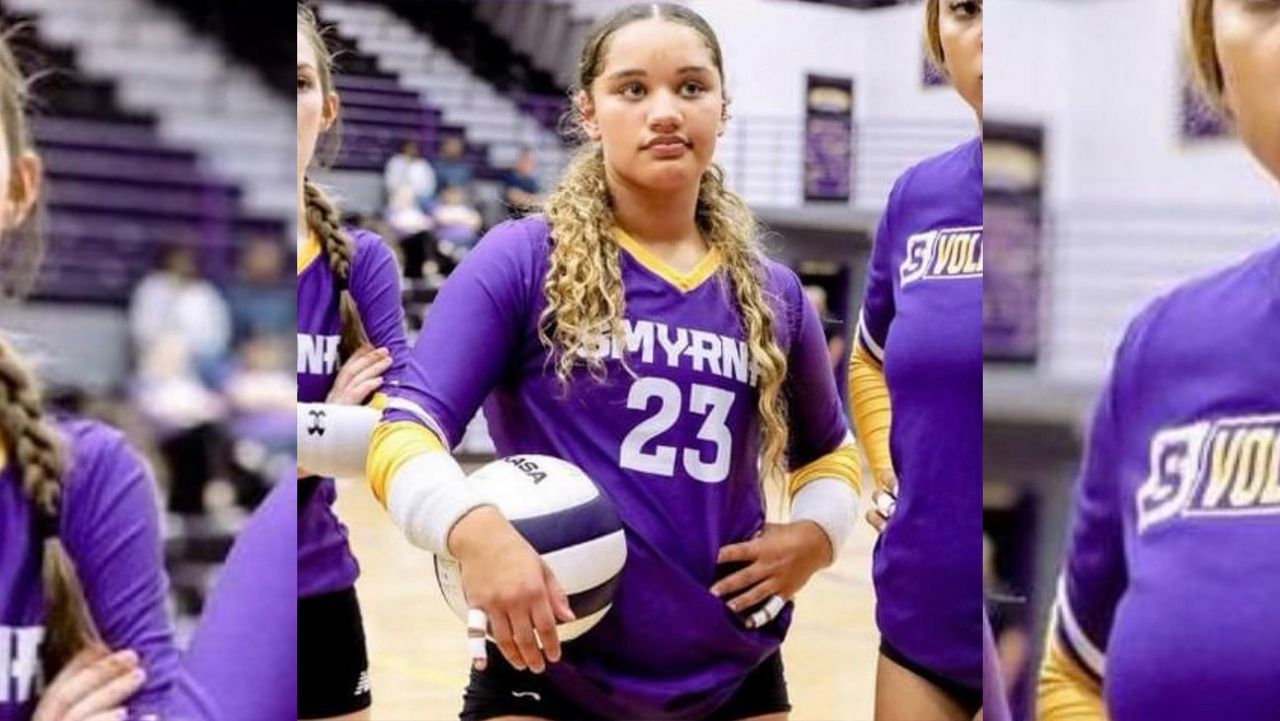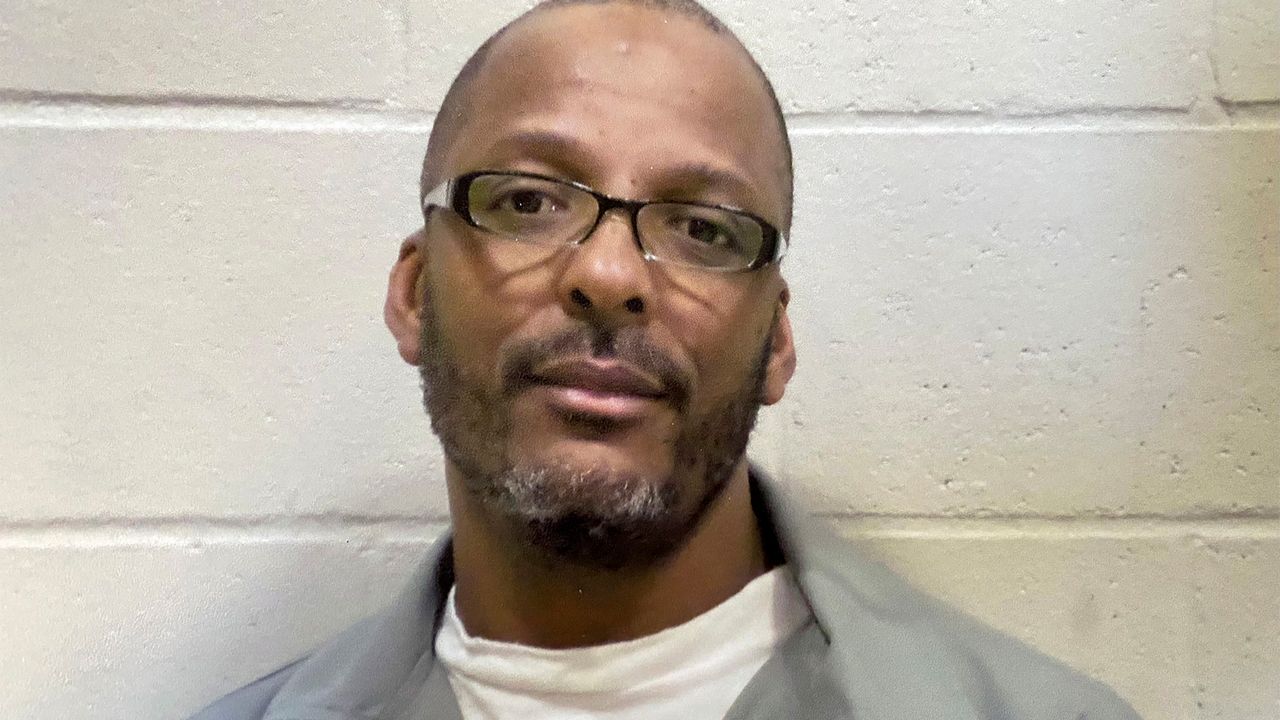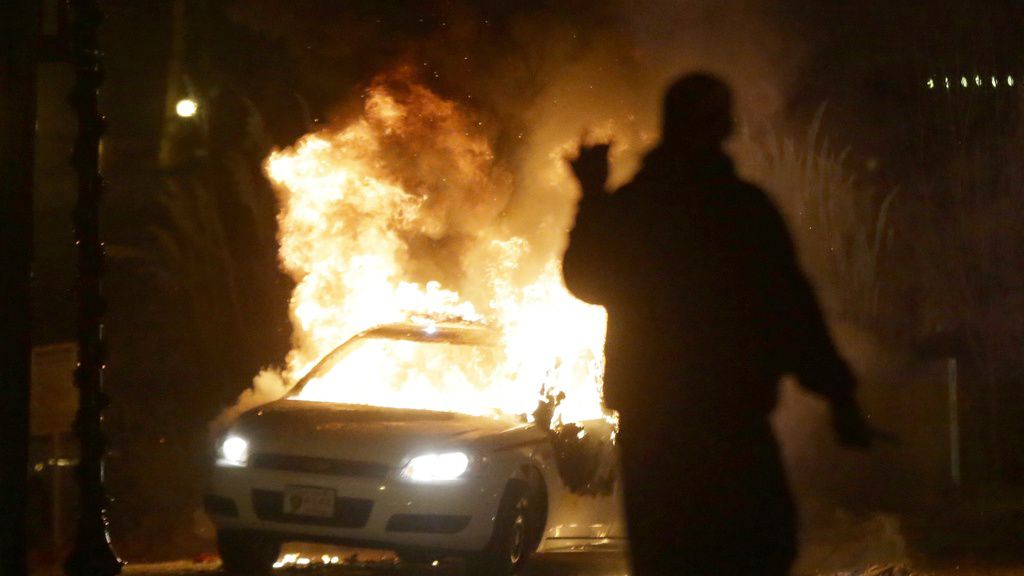ST. LOUIS (AP) — A Missouri man seeking freedom after nearly three decades in prison for a murder he denies committing testified Thursday that he was with his girlfriend on the night of the crime, except for a few minutes when he stepped outside to sell drugs on a corner several blocks from where the victim was killed.
“Did you kill Marcus Boyd?" an attorney asked.
“No, sir,” Lamar Johnson responded.
A hearing in St. Louis will determine if Lamar Johnson’s conviction should be vacated. Judge David Mason is presiding over the hearing that is expected to conclude Friday.
An investigation conducted by St. Louis Circuit Attorney Kim Gardner with help from the Innocence Project convinced Gardner that Johnson is innocent. She filed a motion in August to vacate his conviction. The Missouri Attorney General’s Office is seeking to keep Johnson incarcerated.
Boyd was shot to death on the front porch of his home by two men wearing ski masks on Oct. 30, 1994. While Johnson was sent away for life, a second suspect, Phil Campbell, pleaded guilty to a reduced charge in exchange for a seven-year prison term. Campbell is deceased.
Johnson, now 49, was 20 in October 1994. On the day Boyd died, Johnson made arrangements to sell drugs to a man at a south St. Louis corner.
Johnson said he took his girlfriend and their infant to the home of the friends, who lived at that corner. He stepped out briefly to make the drug deal, then returned, Johnson said. The transaction occurred at roughly the same time Boyd was killed several blocks away, he said.
Later that night, Johnson learned in a phone call that Boyd had been shot to death — and that Boyd’s girlfriend told police she thought Johnson might have something to do with it.
“What did you think would make her say something like that about you?” Mason asked.
“Probably my reputation,” Johnson said, acknowledging he was a gang member with a criminal record.
Johnson’s then-girlfriend, Erica Barrow, testified that she was with Johnson that entire night, except for about a five-minute span when he left to make the drug sale. She said the distance between the friends’ home and Boyd’s home would have made it impossible for Johnson to get there and back in five minutes.
The case against Johnson was built largely on the words of two men: James Gregory Elking, who was trying to buy crack cocaine from Boyd at the time of the shooting; and William Mock, a jail inmate who said he overheard a conversation between Campbell and Johnson at the St. Louis jail.
Mock told investigators he heard one of the men say, “We should have shot that white boy,” apparently referring to Elking.
The man who prosecuted Johnson, Dwight Warren, acknowledged on Wednesday conviction was “iffy” without Mock's testimony. Johnson said he never made any such comment.
Special Assistant to the Circuit Attorney Charles Weiss sought to raise credibility concerns about Mock, noting that he sought release from incarceration as a reward for aiding the case. He had been successful in getting probation after a similar jailhouse revelation years earlier in Kansas City, Missouri.
Warren said he made no such promise but agreed to write a letter on Mock’s behalf to a state parole board. He didn't know if parole was granted.
Elking, who later went to prison for bank robbery, initially told police he couldn’t identify the gunmen. He testified this week that when he was initially unable to name anyone from the lineup, Detective Joseph Nickerson told him, “I know you know who it is,” and urged him to “help get these guys off the street.” So, Elking said, he agreed to name Johnson as the shooter.
“It’s been haunting me,” he said of his role in sending Johnson to prison.
Gardner’s office said Elking was paid at least $4,000 after agreeing to testify. Warren said the money was to relocate Elking, who feared his life was in jeopardy for cooperating in the investigation.
James Howard, who is now serving a life sentence for murder and several other crimes that occurred three years after Boyd was killed, testified Monday that he and Campbell decided to rob Boyd, who owed one of their friends money from the sale of drugs. A scuffle ensued and the men killed Boyd, he said.
“Was Lamar Johnson there?” asked Jonathan Potts, an attorney for Johnson.
“No,” Howard answered.
Campbell, years prior to his death, signed an affidavit saying Johnson was not involved in the killing.
In March 2021, the Missouri Supreme Court denied Johnson’s request for a new trial after Schmitt’s office argued successfully that Gardner lacked the authority to seek one so many years after the case was adjudicated.
The case led to passage of a state law that makes it easier for prosecutors to get new hearings in cases where there is fresh evidence of a wrongful conviction. That law freed another longtime inmate, Kevin Strickland, last year. He had served more than 40 years in a Kansas City triple killing.








